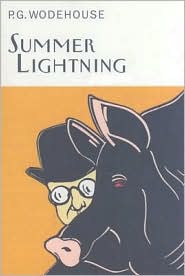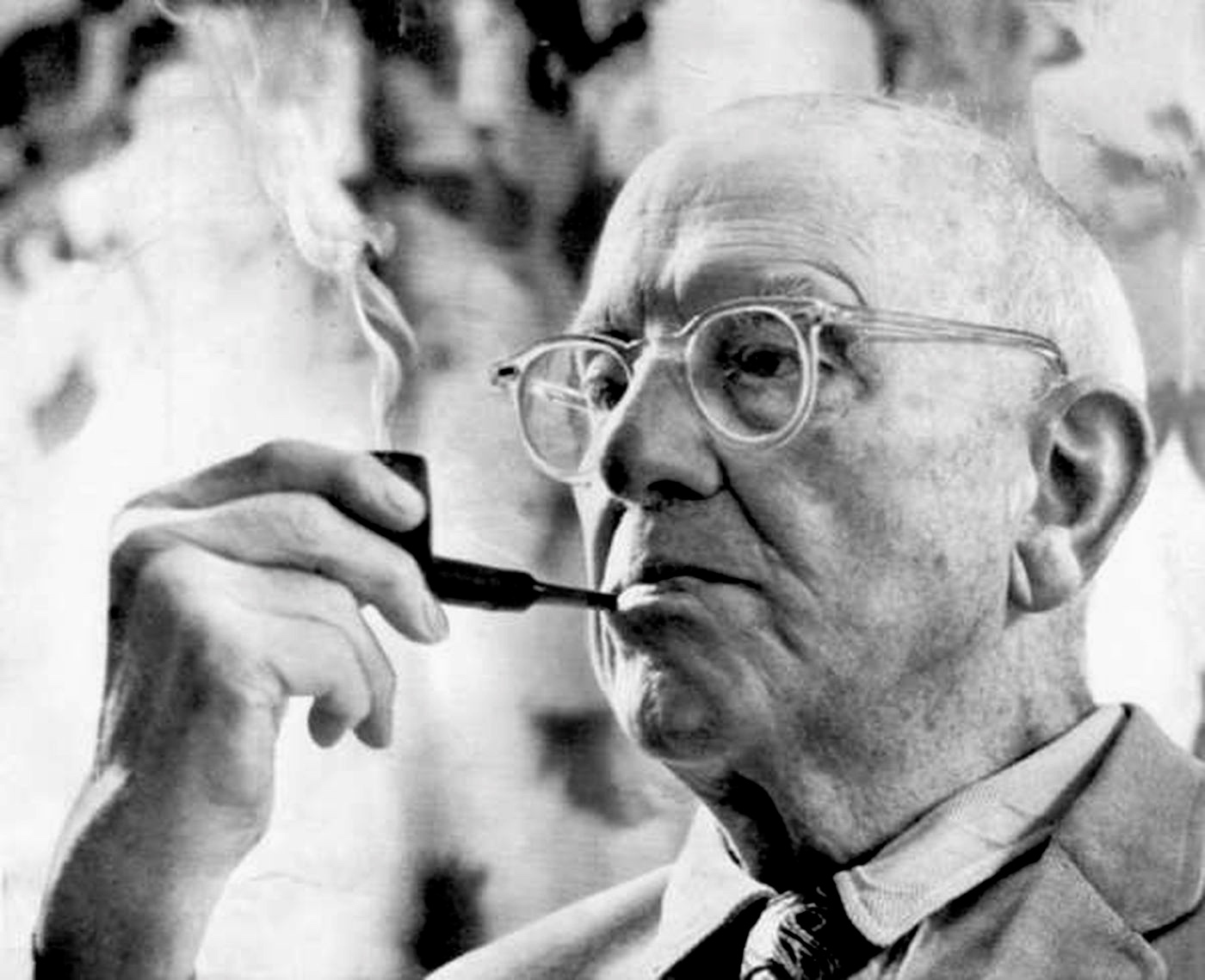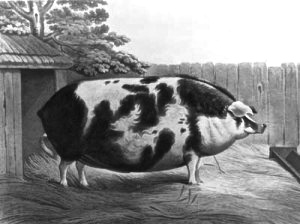A comedy of manners focused not on the drawing room but on the pig pen.
The third in the el even-book Blandings Castle series, Summer Lightning (1929) is a typical comedy of manners in its witty satire of upperclass life, with all its affectations, lack of perspective, and preoccupation with preserving the status quo. Like most of the Wodehouse novels, the main plot and subplots revolve around the subject of love as various characters face complications in their search for true happiness while dealing with class differences, false accusations, and even the impersonation of one character by another. Adding offbeat humor to this novel is the theft of the Empress of Blandings, the prize-winning pig (and all-consuming interest) of the dotty Lord Emsworth of Blandings Castle, just before the pig is due to defend its honor in an annual contest.
even-book Blandings Castle series, Summer Lightning (1929) is a typical comedy of manners in its witty satire of upperclass life, with all its affectations, lack of perspective, and preoccupation with preserving the status quo. Like most of the Wodehouse novels, the main plot and subplots revolve around the subject of love as various characters face complications in their search for true happiness while dealing with class differences, false accusations, and even the impersonation of one character by another. Adding offbeat humor to this novel is the theft of the Empress of Blandings, the prize-winning pig (and all-consuming interest) of the dotty Lord Emsworth of Blandings Castle, just before the pig is due to defend its honor in an annual contest.
As the story unfolds, Hugo Carmody, a failed nightclub owner, who has been hired as Lord Emsworth’s secretary, is in love with Lord Emsworth’s niece Millicent, who finds herself unexpectedly engaged to her cousin Ronnie Fish, who is really in love with Su e Brown, a local dancer, who “becomes” Myra Schoonmaker, a wealthy heiress, in order to be near Ronnie. If this were not complicated enough, Pilbeam, a local detective, and Baxter, the former secretary of Lord Emsworth, appear at Blandings Castle, adding more complications in this carefully choreographed and complex plot, which also features Lord Emsworth’s brother Galahad, who is writing a family memoir, which the family wants to prevent from publication. The pig thief hopes to ingratiate himself with Lord Emsworth by secreting the pig (which is fed by Beach, the castle’s Jeeves-like butler) and then “finding” it later. Like love, however, the course of pig theft, too, goes awry.
e Brown, a local dancer, who “becomes” Myra Schoonmaker, a wealthy heiress, in order to be near Ronnie. If this were not complicated enough, Pilbeam, a local detective, and Baxter, the former secretary of Lord Emsworth, appear at Blandings Castle, adding more complications in this carefully choreographed and complex plot, which also features Lord Emsworth’s brother Galahad, who is writing a family memoir, which the family wants to prevent from publication. The pig thief hopes to ingratiate himself with Lord Emsworth by secreting the pig (which is fed by Beach, the castle’s Jeeves-like butler) and then “finding” it later. Like love, however, the course of pig theft, too, goes awry.
 The characters are stereotypical in their class and motivations, and the novel’s complications follow the standard pattern of comedies of manners. Wodehouse enjoys shining the spotlight on his characters, however, and as they deal with their problems, for better or worse, some of them develop personalities beyond their stereotypes. The reader hopes for their success in love, despite their manipulations of the truth, and their sometimes foolish behavior adds an element of charm to the novel. Light in tone, despite the satire, Wodehouse novels show the absurdities of the aristocratic class, but they also show that aristocrats, too, are human, and in that respect they achieve an element of universality often missing from other satire.
The characters are stereotypical in their class and motivations, and the novel’s complications follow the standard pattern of comedies of manners. Wodehouse enjoys shining the spotlight on his characters, however, and as they deal with their problems, for better or worse, some of them develop personalities beyond their stereotypes. The reader hopes for their success in love, despite their manipulations of the truth, and their sometimes foolish behavior adds an element of charm to the novel. Light in tone, despite the satire, Wodehouse novels show the absurdities of the aristocratic class, but they also show that aristocrats, too, are human, and in that respect they achieve an element of universality often missing from other satire.
Notes: The author’s photo is from http://connect.in.com
The Empress of Blandings may be seen here: http://jacksonville.typepad.com
Also reviewed here: JEEVES IN THE OFFING, GALAHAD AT BLANDINGS
